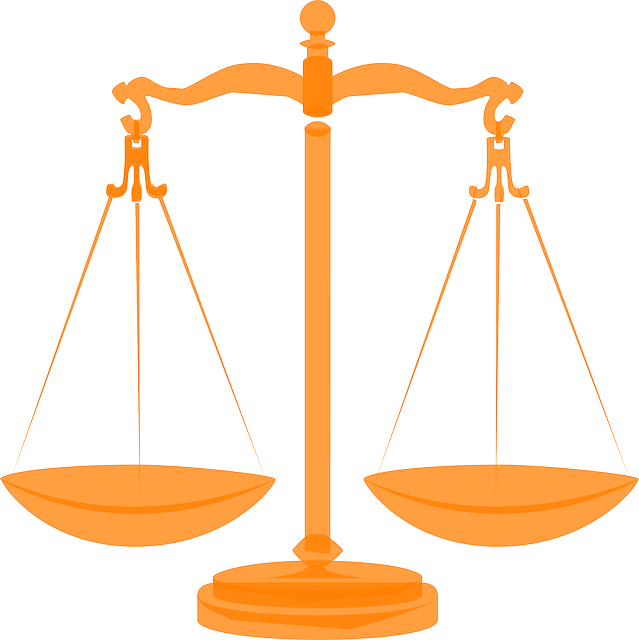Regulatory fraud laws protect market integrity by demanding accountability for deceptive practices, with the Role of Evidence in Establishing Criminal Intent being pivotal. This involves proving mens rea through concrete, admissible proof like financial records, digital footprints, and expert testimonies. Challenges include complex transactions and legal frameworks, requiring skilled attorneys to navigate data analysis, trial presentation, and social context. Case studies demonstrate that strong evidence impacts outcomes, with successful prosecutions or charge dismissals depending on thorough documentation and interpretation. Effective integration of evidence into legal strategy is key to achieving favorable verdicts in regulatory fraud cases.
Regulatory fraud laws are essential tools in protecting businesses and consumers from deceptive practices. This comprehensive overview delves into the intricate world of these laws, focusing on the critical role of evidence in establishing criminal intent. From understanding key definitions to exploring various types of evidence used in criminal intent cases, this article provides insights into navigating regulatory fraud trials. We examine challenges in gathering and presenting evidence while highlighting compelling case studies that demonstrate the profound impact of strong evidentiary support.
- Understanding Regulatory Fraud Laws: A Comprehensive Overview
- The Importance of Evidence in Proving Fraud
- Types of Evidence Used in Criminal Intent Cases
- Challenges in Gathering and Presenting Evidence
- Case Studies: How Evidence has Shaped Regulatory Fraud Trials
Understanding Regulatory Fraud Laws: A Comprehensive Overview

Regulatory fraud laws are designed to protect the integrity of markets and safeguard public interest by holding individuals and corporations accountable for deceptive practices. Understanding these laws is crucial, especially when it comes to proving criminal intent through robust evidence. The role of evidence in establishing intent forms a critical aspect of any successful prosecution or winning challenging defense verdicts. Prosecutors must demonstrate that a defendant acted with knowledge, purpose, and malicious intent to defraud regulatory bodies.
These laws cover various fraudulent activities, from financial misreporting to product misrepresentation, across different sectors. The all-encompassing nature of these regulations necessitates a thorough understanding of the investigative and enforcement process at every stage. Whether dealing with corporate or individual clients, legal professionals must be adept at navigating complex fraud scenarios, ensuring that evidence is collected, analyzed, and presented effectively to support allegations of criminal intent.
The Importance of Evidence in Proving Fraud

In the fight against regulatory fraud, evidence plays a pivotal role in establishing criminal intent. The importance of concrete, admissible proof cannot be overstated; it serves as the cornerstone for any successful prosecution and is crucial at every stage of the investigative and enforcement process. Prosecutors and investigators must gather comprehensive evidence to piece together the fraudulent activities, ensuring they can accurately portray the accused’s actions and motivations.
The role of evidence in establishing criminal intent goes beyond mere documentation; it involves meticulous analysis and interpretation. This includes financial records, digital footprints, witness testimonies, and expert opinions. By employing these various forms of evidence, legal professionals can construct a compelling case, especially when dealing with intricate financial crimes. An unprecedented track record of successful prosecutions is often a testament to the thoroughness and effectiveness of the evidence presented in court.
Types of Evidence Used in Criminal Intent Cases

In criminal intent cases involving regulatory fraud, the role of evidence is paramount. Prosecutors must demonstrate that a defendant acted with a specific intent to defraud or deceive, often referred to as mens rea. Types of evidence used in such cases include financial records, emails and communications, expert witness testimony, and direct observational proof. These pieces collectively paint a clear picture of the accused’s knowledge and intention to violate regulatory laws.
For his clients facing charges related to white collar and economic crimes, achieving extraordinary results hinges on the quality and presentation of evidence. Skilled attorneys leverage these tools to challenge the prosecution’s narrative, highlighting inconsistencies or gaps in the evidence. By meticulously scrutinizing each piece, they aim to instill reasonable doubt, ultimately protecting their client’s rights and interests.
Challenges in Gathering and Presenting Evidence

Gathering evidence in regulatory fraud cases presents a unique set of challenges. Unlike traditional criminal investigations, these cases often involve complex financial transactions and intricate legal frameworks, making it difficult to pinpoint precise moments of deception. Investigators must sift through vast amounts of data, including financial records, emails, and digital footprints, to identify anomalies that could suggest fraudulent activity. Presenting this evidence in a clear and compelling manner during jury trials is another hurdle. The role of evidence in establishing criminal intent is paramount; however, interpreting and communicating intricate financial maneuvers can be a daunting task for both legal professionals and lay jurors.
Moreover, the nature of regulatory fraud often requires navigating the delicate balance between exposing malicious schemes and protecting the rights of individuals and businesses within the philanthropic and political communities. Balancing these interests can make building a strong case even more challenging. Winning challenging defense verdicts demands meticulous preparation, robust evidence presentation skills, and a deep understanding of both the law and the broader social context in which these crimes occur.
Case Studies: How Evidence has Shaped Regulatory Fraud Trials

In many regulatory fraud trials, the role of evidence has been pivotal in shaping the outcome. Case studies across various industries reveal that strong and compelling evidence is key to establishing criminal intent. For instance, in a high-profile white collar defense case, detailed financial records and comprehensive digital forensics played a crucial part in proving or disproving accusations. This led to the complete dismissal of all charges against the defendant in some instances, highlighting the power of thorough and well-presented evidence.
Prosecutors and judges alike rely on evidence to navigate complex legal landscapes, especially when dealing with intricate financial fraud schemes. The ability to interpret and utilize this evidence effectively can determine whether a case strengthens or weakens the prosecution’s argument. Achieving extraordinary results in regulatory fraud trials often hinges on how seamlessly the role of evidence is integrated into the legal strategy, ultimately influencing the verdict and shaping the narrative around criminal intent.
In conclusion, understanding regulatory fraud laws and the crucial role of evidence in establishing criminal intent is paramount in navigating these complex legal landscapes. The types of evidence used in criminal intent cases, along with an awareness of challenges in gathering and presenting them, are essential tools for justice. As illustrated through case studies, evidence has consistently played a pivotal role in shaping regulatory fraud trials, underscoring its importance as the cornerstone of successful prosecutions.






